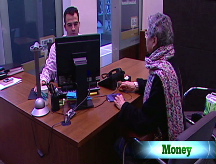Unhappy with your Roth? Just say never mind
If the market crash has made you regret converting to a Roth IRA, you can get a do-over.

(Money Magazine) -- Ever made a financial decision you wish you hadn't, like buying a mutual fund that turned out to be a dog? Wouldn't it be neat if you could simply act as if it had never happened? Well, you have that choice when you convert a 401(k) or traditional IRA to a Roth IRA. That's right: Change your mind and you may be able to get a do-over.
The technical name for this second chance is a recharacterization, and basically it allows you to undo a conversion and transfer the balance (including earnings, if any) from your Roth IRA back to a traditional IRA. You can then leave it there or convert to a Roth IRA again later.
This sort of flexibility is always nice to have, but it can come in especially handy in three circumstances that you may find yourself facing today.
You converted, only to see the stock market tank. Let's say you switched a $150,000 IRA to a Roth IRA in 2008 but the collapse in stock prices has since knocked the Roth's value down to $100,000. Because the tax is based on the IRA's value at the time of the conversion, you're facing a tax bill of $42,000 this April (assuming a 28% tax bracket).
By recharacterizing, you can shift the $100,000 back to a traditional IRA. If your IRA is still worth $100,000 when you convert again, you'll owe $28,000 in taxes, saving yourself a tidy 14 grand.
You want to conserve your cash. In general, a switch to a Roth is more likely to pay off if you can cover the conversion tax with outside funds rather than by tapping the balance of the 401(k) or IRA itself. That may not be a problem in flush years. But when the markets are sinking and the economy is flailing, you may prefer to keep your taxable investment accounts and cash reserves intact for an emergency.
So if you've already converted but are now having second thoughts about depleting your savings, undo it and hold on to the money that would have gone to the IRS.
You're not sure the conversion is still tax-smart. Tax rates are always a major consideration in weighing a conversion (by paying taxes on your IRA balance today rather than in retirement, you're betting that your tax rate will be higher later). And with a new President who campaigned on a sweeping revamping of tax laws, we could see changes that may lead you to rethink your decision.
During his campaign, Obama said he would eliminate taxes for seniors making less than $50,000 a year. It's anyone's guess whether this will make its way into law. But if you're nearing retirement, it raises the possibility that converting to a Roth IRA could be a bad deal since you would pay taxes on IRA dollars you might be able to withdraw tax-free later.
To avail yourself of this mulligan, you have to obey some tricky tax rules. You can recharacterize a conversion anytime up to the income tax filing deadline for the tax year of your conversion, including extensions. So if you converted in 2008, you can undo it as late as Oct. 15, 2009.
If you want to roll your account into a Roth again, you must wait at least until the year after your original conversion (2009 or later if you converted in 2008), and your second conversion must be at least 31 days after your recharacterization. And, of course, you must still meet the Roth conversion eligibility rules: Your modified adjusted gross income, whether you're single or married, can't exceed $100,000. (This hurdle disappears in 2010.)
Finally, keep in mind that just because you have the right to a do-over doesn't mean you'll come out ahead by exercising it. If, for example, you recharacterize a Roth that's now worth $100,000 to save taxes, it's possible that stock prices could recover before you're able to switch back into a Roth, leaving you with a higher tax bill.
All things considered, though, it's comforting to know that you have an escape hatch available if you need it.
Sign up for Updegrave's weekly e-mail newsletter at cnnmoney.com/expert. E-mail him at longview@moneymail.com.
Have you lost 40% or more of your net worth in the market? We may be able to help. Tell us how much you lost, what you have left, and what you're invested in, at makeover@moneymail.com. Include name, age, city, state and a recent photo. ![]()



